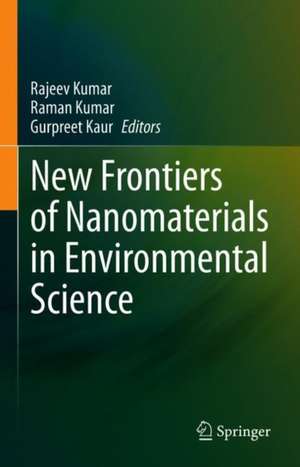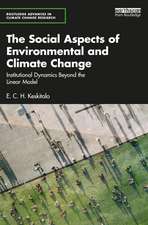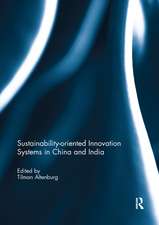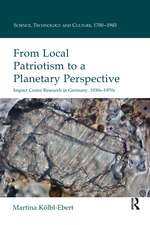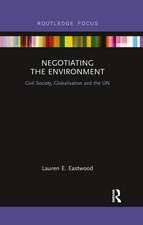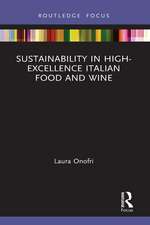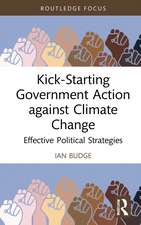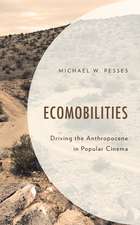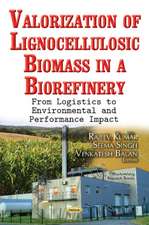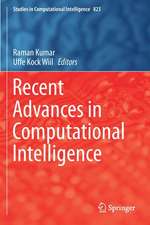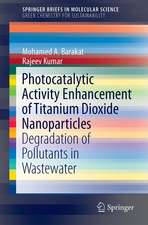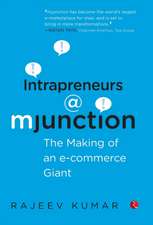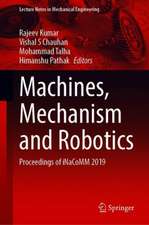New Frontiers of Nanomaterials in Environmental Science
Editat de Rajeev Kumar, Raman Kumar, Gurpreet Kauren Limba Engleză Hardback – 17 feb 2021
| Toate formatele și edițiile | Preț | Express |
|---|---|---|
| Paperback (1) | 641.03 lei 6-8 săpt. | |
| Springer Nature Singapore – 18 feb 2022 | 641.03 lei 6-8 săpt. | |
| Hardback (1) | 647.27 lei 6-8 săpt. | |
| Springer Nature Singapore – 17 feb 2021 | 647.27 lei 6-8 săpt. |
Preț: 647.27 lei
Preț vechi: 761.49 lei
-15% Nou
Puncte Express: 971
Preț estimativ în valută:
123.85€ • 129.66$ • 102.48£
123.85€ • 129.66$ • 102.48£
Carte tipărită la comandă
Livrare economică 05-19 aprilie
Preluare comenzi: 021 569.72.76
Specificații
ISBN-13: 9789811592386
ISBN-10: 9811592381
Ilustrații: VIII, 297 p. 78 illus., 56 illus. in color.
Dimensiuni: 155 x 235 mm
Greutate: 0.61 kg
Ediția:1st ed. 2021
Editura: Springer Nature Singapore
Colecția Springer
Locul publicării:Singapore, Singapore
ISBN-10: 9811592381
Ilustrații: VIII, 297 p. 78 illus., 56 illus. in color.
Dimensiuni: 155 x 235 mm
Greutate: 0.61 kg
Ediția:1st ed. 2021
Editura: Springer Nature Singapore
Colecția Springer
Locul publicării:Singapore, Singapore
Cuprins
Chapter 1. Environmental Pollution its Causes and Impact on Ecosystem.- Chapter 2. Nanomaterials; Applications; Implications and Management.- Chapter 3. Environmental Nanotechnology: Its Applications, Effects and Management.- Chapter 4. Nanoscavengers for the waste water remediation.- Chapter 5. Development of Environmental Nanosensors for Detection Monitoring and Assessment.- Chapter 6. Nanotechnology for the Remediation of Heavy Metals.- Chapter 7. Emerging Potential of Nano Based Techniques for Dye removal.- Chapter 8. Nanomaterials for remediation of pesticides.- Chapter 9. Application of carbon-based nanomaterials for removal of hydrocarbons.- Chapter 10. Nanofertilizers and their applications.- Chapter 11. Nanopesticides in Agriculture.- Chapter 12. Waste Management using Nano Technology.- Chapter 13. Phytoremediation and Nano-remediation.
Notă biografică
Dr. Rajeev Kumar working as Assistant Professor in the Department of Environment Studies, Panjab University, Chandigarh since 1 July 2010. He has completed B. Sc (Honours School) and M. Sc (Honours School) degree in Chemistry from Department of Chemistry and Centre of Advanced Studies in Chemistry, Panjab University, Chandigarh. His main research areas include organometallic, nanochemistry and bioremediation of the environment pollutants with the help of fungi. He has completed one DST-SERB project funded by Department of Science and Technology (SERB), Govt. of India, New Delhi and also the Project Director of “Indo-US Partnership on Green Chemistry/Engineering and Technologies Education, Research and Outreach for Sustainable Development funded by University Grant Commission and MHRD, New Delhi”. He has published 52 International research papers in with more than 180 citations and also published 15 International book chapters with Springer International; CRC, London and Wiley Interscience etc.; his H index is 11.
Dr. Raman Kumar is working as Associate Professor in Department of Biotechnology, Maharishi Markendeshwar University, Mullana (Ambala), Haryana, India Since 2011. He has also worked as Senior Research Fellow, Division of Soil and Crop Management, Central Soil Salinity Research Institute, Karnal, India from 2007 to 2010. He has experience of about 13 years in the field of Teaching and Research in the area of Microbial and Environmental Biotechnology. He has published more than 40 publications and 02 books in Various National and International Peer Reviewed Journals. He developed many bacterial and fungal strains for removal of heavy metals from wastewater. His current research areas are Bioremediation and Biodegradation of toxic pollutants, Pesticides and azo dyes using microbial consortium from the industrial Effluents, Mechanism involved in the heavy metal bioremediation.
Dr. Gurpreet Kaur is currently working as an Assistant Professor in Department of Chemistry, Panjab University. She did her B.Sc. (Hons school), M.Sc. (Hons school) and Ph.D. from the same department. Dr. Kaur is one of the recipients of DST Inspire Faculty Award. She is a physical chemist and works in the field of colloidal Chemistry. Her area of research deals with fabrication of metal functionalized surfactants for wide spectrum application including formation of bioactive materials and their interaction with biomolecules (DNA, proteins, etc), antimicrobial surfactants, microbial corrosion inhibitors, and electrocatalyst. She has more than 50 publications including review articles, 5 book chapters, 3 Indian Patents; one granted and two filed (and one applied for).
Textul de pe ultima copertă
This book provides the detail information about nanoparticles, their types, characterization techniques such as TEM, FESEM, AFM, XRD etc. nanogenotoxicity, metal and metal oxide nanoparticle’s toxicity, physical and chemical characterization of nanomaterials, entry routes, cell-nano interaction studies, possible impacts to the human kind, and on the methods of evaluating the toxicity. It puts together comprehensive and up-to-date information about sustainable approaches in making an eco-friendly environment using advanced nanotechnologies. It educated readers about the new frontiers and scope of employing various state-of-art nano-technologies to clean-up and save our environment. This book will be of interest to teachers, researchers, environmental biotechnologists, capacity builders and policymakers. Also the book serves as additional reading material for undergraduate and graduate students of agriculture, environmental sciences, environmental engineering and biotechnology.
Caracteristici
A comprehensive account of application of nanotechnology in environment management Illustrates sustainable approaches using advanced nanotechnologies in developing eco-friendly processes Explores properties of nano-particles and their functional role in achieving sustainable solutions
